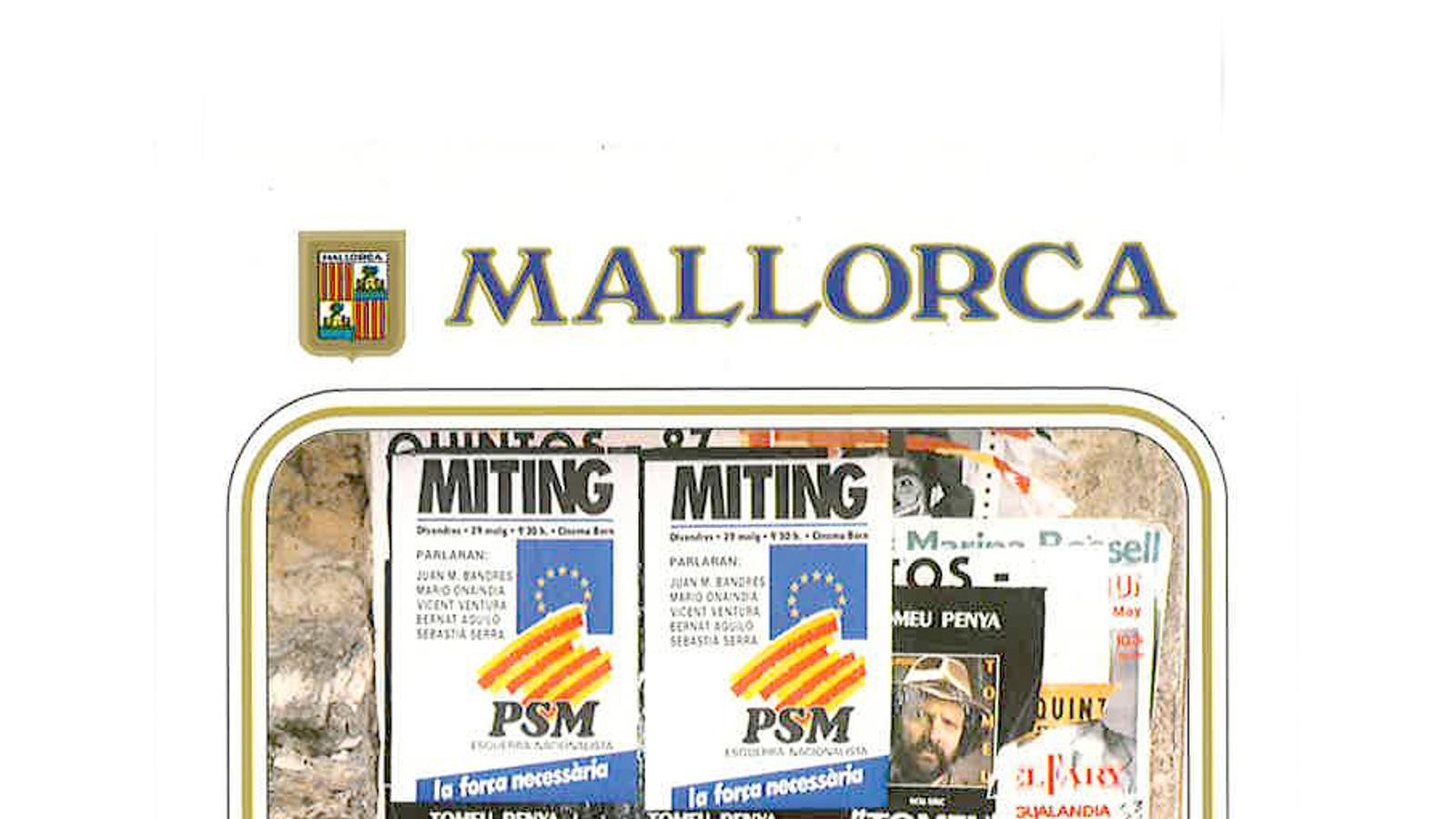The tourist postcard of the residents of Vilafranca de Bonany, dominated by the PSM rally poster, offers a misleading view of the sociological reality of Mallorca almost four decades ago. This is what historian Antoni Marimon, author of the book Between Reality and Utopia: History of the PSM (Documenta Balear, 1998), asserts: "It's a charming image, but the Part Forana of those years didn't vote much for the nationalist left. They were more for Gabriel Cañellas."
In 1983, 42-year-old Cañellas became the first regional president since the restoration of democracy. He did so under the acronym of Manuel Fraga's Popular Alliance (AP), which in 1989 became the People's Party (PP). Four years earlier, he had already run for mayor of Palma as head of the Democratic Coalition. "Cañellas," Marimon notes, "was a gentleman from the city, educated in Monti-sion and Deusto, who knew how to connect with the peasantry. His defense of our country represented a very conservative traditional Mallorcan identity that already existed in the 19th century, during the time of Antoni Maura. Unió Mallorquina was along the same lines."
The 1987 European elections announced in the iconic image coincided with the second regional elections. "The PSM," the historian states, "was deeply affected because its general secretary, Damià Ferrà-Ponç, had just joined the PSOE. However, it managed to resist the blow. In those elections, it retained the two seats it had held from its first term. And in 1991, it won three important ones."
The PSM of those years championed environmentalism—the struggle had begun in 1977 with the occupation of Dragonera by a group of anarcho-syndicalists—and the integration of immigrants arriving from the Iberian Peninsula during the tourism boom . "At the end of the 1990s, many town councils began to carry out projects thanks to the Mirror Plan. That urban beautification plan led to a second wave of migration, especially from Africa. The third wave arrived in 2003 with the monumental road works carried out by President Jaume Matas of the People's Party (PP)."
Marimon recalls a very illustrative anecdote of the difficulties the PSM has historically had in broadening its voter base. "The recently ousted vice president of the First Progress Pact, Pere Sampol, always told it. He was also the Minister of Economy, Trade, and Industry. The merchants never tired of congratulating him for having promoted measures that would help their businesses. But they told him they would never vote for him."


